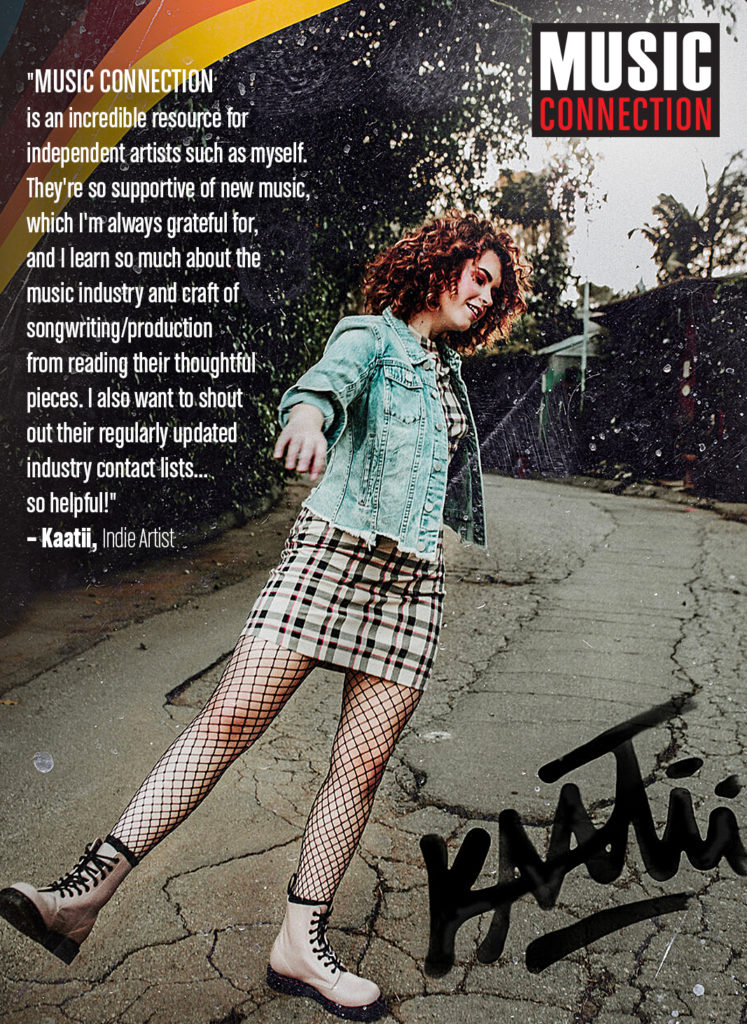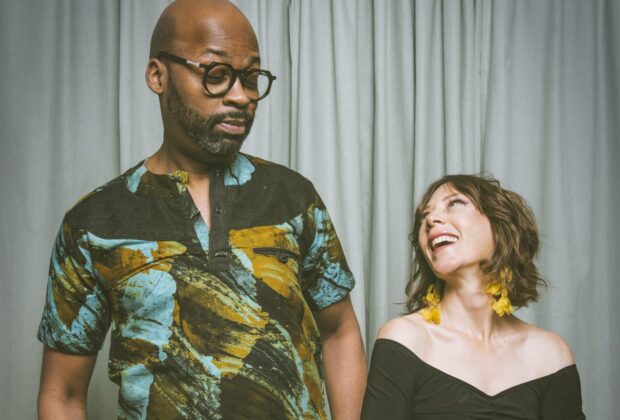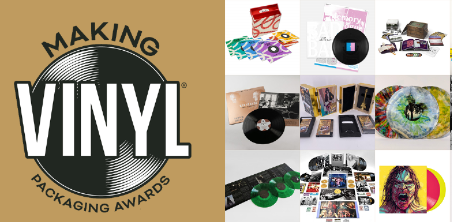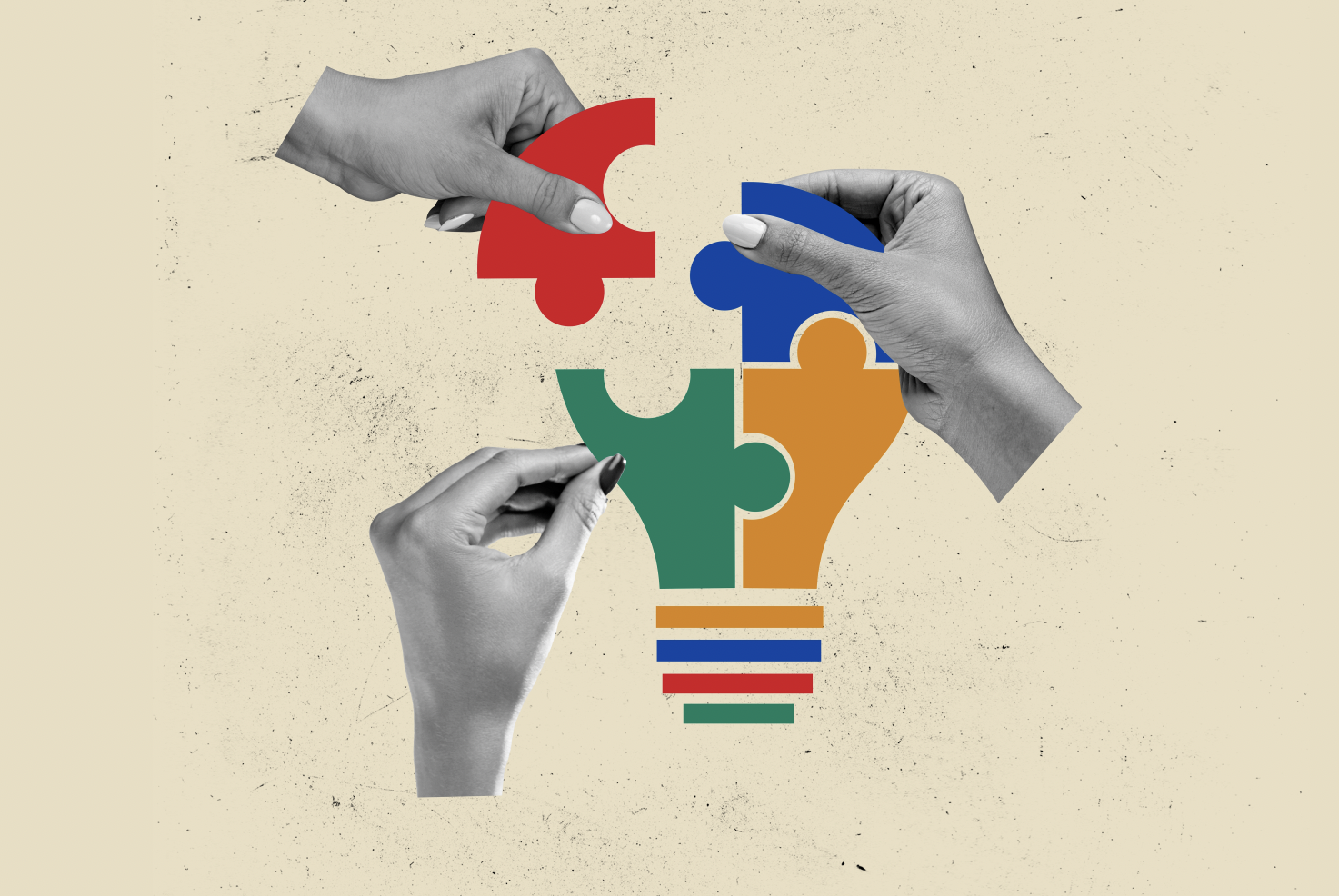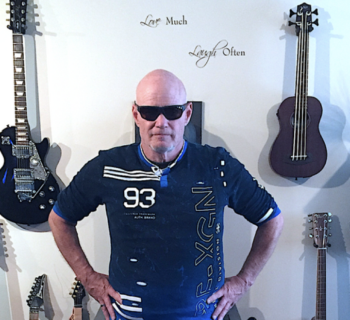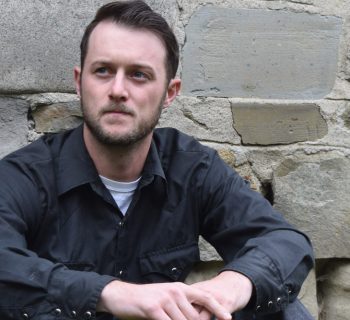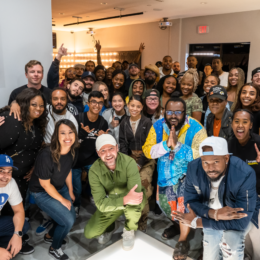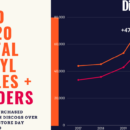Photos by Lauren Desberg
ON THE HEELS OF THEIR GRAMMY® AWARD nomination for Best Jazz Vocal Album, Gretchen Parlato and Lionel Loueke continue to make their mark on the jazz scene, while remaining as humble and appreciative of their journey as ever. Born and raised 7,500 miles apart (California and Benin), their creative synergy is pure magic, the result of 23 years of friendship and musical collaboration.
Their individual careers are impressive; Loueke formed West African-influenced jazz trio Gilfelma (alongside Ferenc Nemeth and Massimo Biolcati), is part of Blue Note’s Allstar Band, recorded and toured with Chick Corea, and has been touring with Herbie Hancock for over 10 years. He performed on 2007’s Grammy-winning album of the year, River: The Joni Letters. in addition to garnering extensive vocal awards, Parlato’s stylings appear on over 80 recordings, including Grammy-winning albums with Esperanza Spalding, Terri Lyne Carrington, and Taylor Eigsti. Their combined credits include Wayne Shorter, Robert Glasper, Marcus Miller, Terrence Blanchard, Kendrick Scott, and others. The duo head out on tour to Europe next month.
Juggling touring, teaching, and balancing family life, the duo’s Grammy-nominated project, Lean In, has brought them back to where it all began.
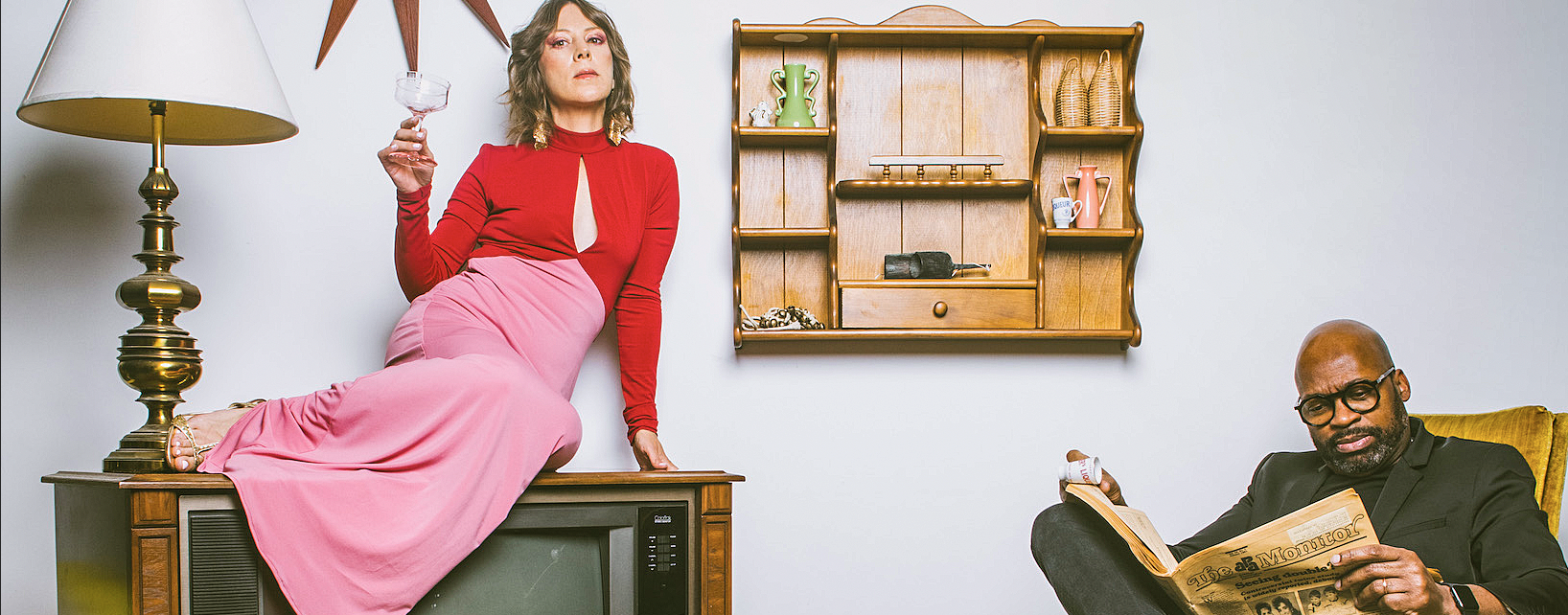
Music Connection: You refer to yourselves as musical soulmates, have used each other’s music on other projects, and have been connected for so long. What was the inspiration for Lean in?
Lionel Loueke: There’s no one else out there I feel so connected to. When it comes to music, it’s clear for me. As you said, I play on her album, she plays on mine. We had our own life. We grew as musicians, we’ve been through COVID. I don’t think we could have done it earlier. I feel like everything was landing at the right time.
MC: You [Loueke] wrote two other records during COVID. What made this different? It struck me as so positive, which may be counterintuitive for a lot of people coming out of such a dark space?
LL: Absolutely. We all know what we’ve been through and Herbie [Hancock] often says on stage that ‘COVID has taught us one thing: that we need to take care of each other. Otherwise, we are going to die.’ We are one family, you know? For me, it’s important to celebrate life, enjoy the moment, not take for granted what we have earned, and do the best we can while we’re here.
Gretchen Parlato: I agree. Even the title—Lean In—it’s wonderful you feel it’s positive and has something joyous, but someone else might hear it and lean into their suffering or pain. That’s what it is to me. When you study about embracing your suffering, acknowledging it, sitting with it, and trying to move through it—not pushing it away. Lean In is an offering for ourselves, for each other, to just feel it all. That, to me, was the message of COVID. The whole album was an offering and, in a cool way as artists, we end up creating something we can use as our own healing, but it can also have the effect on other people and listeners. We always feel very lucky, very grateful to be artists. We suffered a lot during COVID, but we were able to tap into something deeper and create.
MC: The way you see that pain and let it pass, as opposed to holding onto it, definitely speaks to Buddhist fundamentals.
GP: It comes up a lot in different readings…leaning into your every emotion like you’re holding a newborn baby and saying, ‘it’s okay, I’m here for you. Let’s be here together.’ Whether it’s amazing or tragic, it’s just here, and you’re taking care of it. With Lionel and I both being parents, it’s a really important, very deep message to pass on to kids to process their own emotions.
LL: I practice Buddhism, so it’s a big part of who I am and what I do. It comes through the music, through a way of living. The biggest difference for me compared to 20 years ago was music was everything for me—not anymore. Music is just what I do, not who I am. If I put my focus on who I am, if I can be a better person, then whatever I touch—music being one of them—will be at a good place too.
MC: Does that makes the music deeper or more meaningful now?
LL: Absolutely.
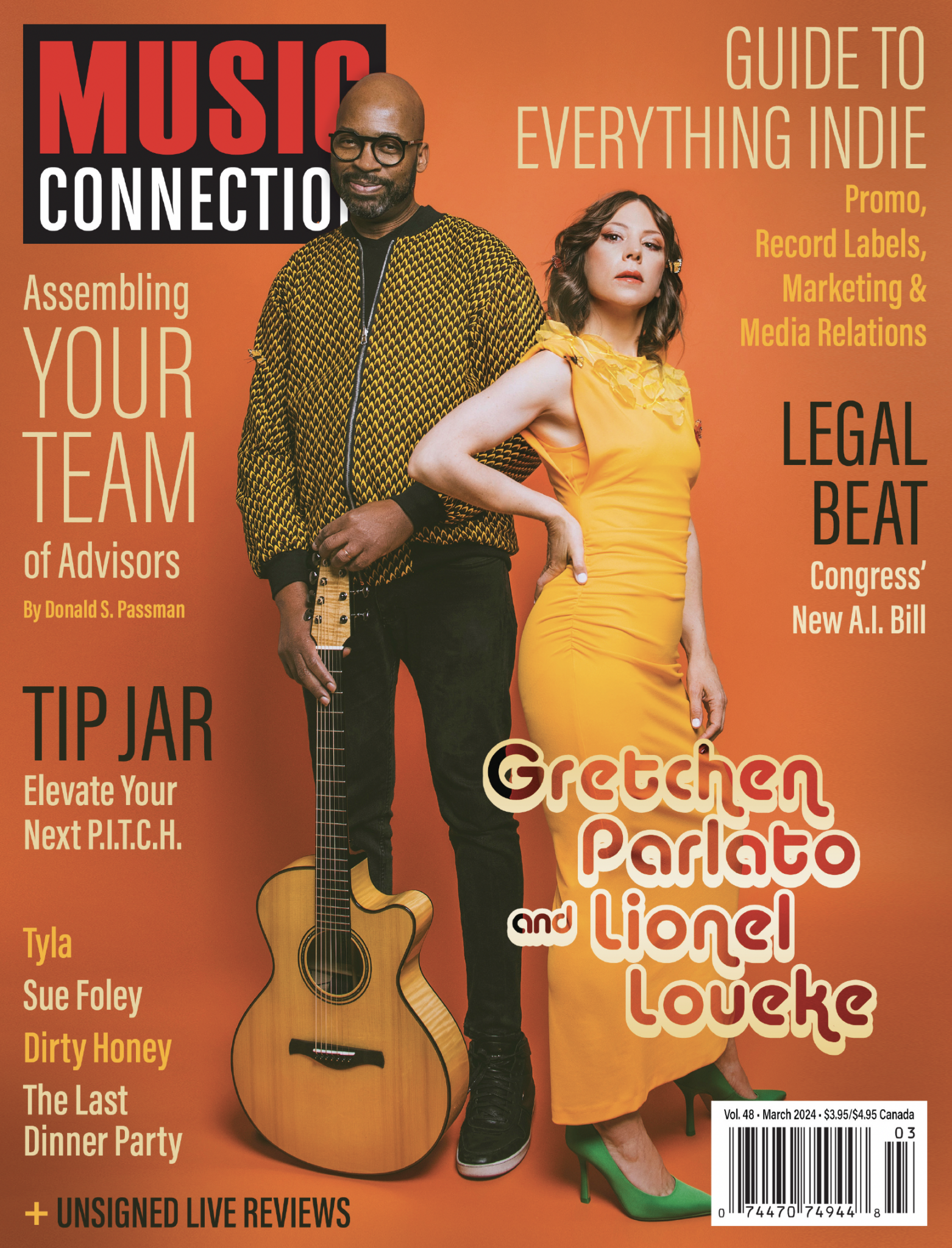
MC: The way you use space really is very deliberate and conscious. What makes you stand out is that you’re both conscious on stage. That may be obvious to most people, but I think it gets missed in the doing for a lot of artists. I’m wondering if, because you’ve both created that space in your own live on some level, that the art is more palpable, or lands differently now?
LL: For me, it’s definitely beyond the music—we inspire each other. We play our journey through music. 20 years ago, it was all about the notes; now it’s not about that—‘nothing is wrong, or everything is wrong.’ Be true to yourself and be real. If it’s honest, people feel it. They don’t need to understand the musical technology that jazz musicians usually focus on.
MC: [Lionel] You’re known for moving in the ‘brave space’—letting go of control and creating. The two of you do that in such a trusting way of surrendered symbiosis, and so much is improvised. Where does that trust come from?
GP: It’s been 23 years since we met and started playing together. I’m not sure if we could define it back then? When Lionel mentions ‘it’s not who I am, it’s what I do’—I remember at UCLA, even before meeting Lionel, that Herbie Hancock said that in a lecture. I took it in, but I didn’t really get it. We were working so hard for our music—it was all-encompassing. Now I understand and that’s why this project makes sense, [why] we waited this long. There’s more for us to say. There’s a higher, deeper level to connect on. There is an unexplained, wonderful other world that both of us individually fall into when we play, when we create. We’re deep in that individually. When it connects the two of us, I completely lose myself. It’s transformative from the first to the last note of a gig as a performer, let alone a listener. I don’t know why, I don’t know how, but it’s an amazing connection to have with somebody. We’re playing off each other and the energies in surrender. It’s hard to explain. It’s hard to teach. I think you just have to live it.
MC: When I saw you at the Bowl (2023’s Hollywood Bowl Jazz Festival), it was very conscious and deliberate energetically, but it’s as if you weren’t there physically? You’re almost not really aware—it’s just happening. Talking to you before the show, you’re there, but in that moment of creation, it’s almost like the two of you disappear and there’s this thing that just comes through you?
GP: I love that that’s what it was. We need someone like you to explain.
LL: Yeah.
GP: It’s a beautiful thing. That’s really what it feels like—especially at the Hollywood Bowl. There’s 18,000 people there and we’re a very intimate duo project, in this giant environment…
MC: The way it landed was something very intimate and powerful.
LL: Thank you. I’m going to add a few things about that. Connected to the title, we lean on each other. There’s a trust, a high listening, and no judgment—we go with the flow. The mistake is a big part of what we do, too. Nothing is perfect. We don’t want to play perfectly—it’s not music. We challenge each other. It’s not that we sat in a comfort zone for 20 years. I don’t know where she’s going to go and I trust her. I go on that journey completely blind. That’s the beauty of what we do. We don’t question it, we just go for it and, because we move listening and trusting each other, we find our way back home. There’s no preconception. You don’t get it wrong in progress, you get wrong because you don’t know where you are. There’s no judgment.
GP: There’s no failure. It’s just an unexpected opening… and Lionel’s never wrong.
LL: Oh, yeah. You know.
MC: That’s why it is so fresh-sounding.
LL: Absolutely. If you saw us tonight and you saw us tomorrow, it’s going to be a completely different show.
MC: As a listener, it’s meant to be an experience, to be authentic and evolving.
LL: For us, too. If we do the same thing, we get bored; how you can expect people listening not to get bored? It’s not the perfect music, it’s not the cleanest, but it’s natural. That truth for me goes with mistakes—everything is there.
MC: What has been the most surprising outcome from the record?
GP: The Grammy nomination.
LL: That’s what I was going to say!
GP: People say this all the time, but it’s so much about the nomination. I’m so happy—he [Loueke] lives in Luxembourg, so to [have] come all the way to L.A. for the Grammys… I love that we got to be there together with our families. It’s all about the acknowledgment and celebration of that day, no matter what happens.
MC: What does the process look like when you’re creating together?
GP: With this project, it was a combination. We sent each other different ideas, whether complete or just a little section that needed work. We weren’t sitting in the same room writing together, but we could go back and forth and add to each other. There was a lot to piece together and when we finally got together in person, it was rehearsal the day before, then two or three days in the studio. I’m not sure we’ve [ever] written a song together in person?
LL: We’ve done interviews and improvised together. With collaborations you [Parlato] send me, I add chords and already have the record, then you come up with the melody.
GP: That’s the process and it’s worked really well. You have your space to focus in between, to sit with things. When I’ve been writing in a room with somebody and it’s kind of immediate, I just want to sit—sometimes I need that space. I think it’s worked well. There are plans to continue to write but we make do with what we have. We had improvisation [from] Bernice Travis on bass and Mark Jonah on drums. They would play for half an hour, record, and then I went to listen. I picked up interludes and clips and then wrote melody and lyrics. It’s a collaborative effort.
MC: The way you’re writing together speaks to your creativity on stage because you’re leaving it room to breathe that might otherwise have been lost. Maybe because there’s no container, there’s the idea of infinite possibilities, nothing is defined?
GP: That’s so true. I realize that’s why it’s worked so well—that’s how my brain works. Oh, that’s really cool. Let me sit with this. Let me work with this. I want to do this on my own in private—I’ll come back and offer something. That way of writing is interesting and became popular during COVID [since] we all had to work remotely.
MC: The shows are much more exciting because it’s the first time the two of you are playing it live together.
LL: That’s true—and many people don’t know Gretchen is a record producer.
GP: I don’t even know that I…
LL: [To Gretchen] You should you should be producing. [When recording,] you are so
into the music that you need to hear from somebody from outside. You start focusing so much on yourself instead the whole piece of music. We didn’t have any producer for this—we did it on our own and everything she [Parlato] said was right on point—double my voice here… That is a quality of production—not everybody has it.
MC: Your joint commitment is to the sound and the creation—there’s no ego so it allows for space and room for it to breathe. It’s not about trying to prove anything.
LL: Exactly right. That’s the point.
MC: So, with all his expansiveness, have there been any poignant moments that stand out, that took it to another level?
GP: The Hollywood Bowl was a pretty out-of-body experience. That was a high for me. I really enjoyed the Blue Note in New York City for a couple of nights. My family was able to sit in [and] I love the memories of that, the intimacy of the club. Most of our history is in New York City together, so there’s an energy of the room and a real connection.
LL: It’s hard to describe. Something happens I couldn’t put a word on it. You cannot control it.
MC: You’re both incredibly humble and grounded, and a lot of that comes from your belief systems. Are there any practices you commit to that keep you from getting swept up?
LL: My chanting is the first thing I do in the morning for 15- 20 minutes. It sets me up for my journey and keeps me calm. I don’t chant for myself, I chant for people suffering. That has kept me going.
GP: We chanted together on tour and that was really special to do before shows. In a technical sense, think of it as a warm up. You’re vocally connecting, but there’s an emotional and spiritual aspect. I wake up very early, diet keeps me well—and exercising daily. I’ve started reading some sacred text every morning and taking notes. That process helps my brain to take it in. It’s that balance of creative time, independent time to be healthy, and balancing family giving and connecting. When we’re home with family, it is very different from touring, so we have to find balance and appreciate both.
MC: You’re both so open about the creative process, while also deeply committed to self-evolution. There’s a beautiful parallel that creates space to create. Would you say fate has played any role in the journey?
GP: Even on the first day… we met at our audition for the institute and were the last two to audition. Of all the people that auditioned, the order that people were in there… no one else was there. Something put us in that place at the same time.
LL: I truly believe things happen for a reason—good or bad. You meet somebody and it doesn’t work out the way you were hoping, but there’s a reason behind it. We learn from every move we cannot control, we appreciate, and we move on if we have to. There’s a reason behind it because it’s too much to be random.
MC: Do you feel there’s a resurgence in jazz?
LL: It’s always been there - what has changed is how people value [it]. In Europe or Japan, it’s always been there. In the U.S., it’s in the air. I remember the first time I went to Starbucks in Boston and heard Coltrane. I mean, where are you going to hear Coltrane in Starbucks?!
MC: I feel a shift happening: people are craving a real and connective, genuine feel to music.
GP: We’ve been in the scene and creating—you don’t feel it go up and down. As we age, there’s a whole other generation doing it. It’s amazing. Jazz has always been a beautiful thing where, as you get older as an artist, you become even more appreciated. To hear our favorite artists up to the last breath, it’s all amazing and beautiful, We’re in the right genre.
LL: People are tired of hearing the same thing over and over. To be a jazz musician, people get a chance to hear something different than what they hear all the time—that has respect.
MC: What do you think jazz means in 2024? Would you say jazz is becoming genre-less?
LL: People are just paying more attention. Dizzy [Gillespie] played with Charlie Parker and did a lot with South American musicians, brought Afro-Cuban music to jazz. Today, we have different tendencies from India and places that brought their culture. People paying attention can hear, but people who aren’t don’t realize the spirit of it, the improvisation.
GP: We come from years of study, but what we’ve created has always been untraditional. There’s room for the super purist, if that’s what you feel. It’s refreshing to hear when someone’s really in the tradition and continuing that. But I think it’s beautiful, and there’s room for, genre-bending. [In] the world of music, there’s room for everything.
MC: What advice would you give for anyone pursuing jazz performance?
LL: Be true to yourself. Every person is different. I get so happy when I’m playing my instrument and something I’ve been working on for so long is coming out—that’s my joy. You have to believe in yourself; try new things, don’t copy
GP: It’s all about what’s genuine and honest to who you are. You want your art to be an extension of who you are as a person, encompassing everything about you. The sound on your instrument should just be effortless—the same way we speak is the way you should sing or play. Don’t try so hard to imitate. Ella did it. Let’s just listen to Ella if we want Ella. What can you do? Everyone has a story, something to share, so it should be a relief to realize what’s already inside. Let that out, and not try to grab things. Everything already exists, it’s just the unveiling—and that can take many years. The beauty is the journey, not the final destination. I get to be an artist, it’s a really beautiful thing. This is the way to be happy in life and have less attachments and suffering.
LL: As a musician, this is what we think, but there’s a whole industry a little against creativity. The labels… it’s not new. The industry has to do the work to look for people who have something else to say. You don’t know how much you’re going to make if it’s new, but go for a new sound. If it doesn’t work, at least you are part of the creativity instead of going for something you know and want to make money out of? Most of the time that doesn’t work because it’s another copy.
6 Quick Facts
• While her first name is of German descent, Parlato is not German. Her mother thought ‘Gretchen’ sounded like something from a fairytale. Parlato has Jewish heritage and her middle name, Sarah, is in honor of great grandmother, Sarah Steinpress.
• Loueke’s first guitar cost him $50 and took a year of savings. Soaking his strings in vinegar to keep them clean, he could rarely afford to replace them when they broke, so he used bicycle brake cables instead (he frequently needed a carpenter to repair the guitar neck).
• Parlato’s grandfather, Charlie, played trumpet (Kay Kyser Big Band, Tennessee Ernie Ford, Lawrence Welk) and sang tenor parts on The Flinstones and Jetsons theme songs, as well as harmonies on Parlato’s favorite: Sam Cooke’s “You Send Me.”
• As a teenager in West Africa, Loueke breakdanced to Herbie Hancock’s “Rockit,” knowing nothing of Hancock’s music or the significance he would later have on him as a professional musician (he studied Hancock later at school in the Ivory Coast and in Paris).
• Parlato has three cats who act as her alarm clock, waking her up at 5:30 a.m. sharp. Every. Single. Day.
• Bassist for Frank Zappa, Al Jarreau, Don Preston, Barbra Streisand, Henry Mancini, Paul Horn, Gsbor Szabo, Buddy Rich, and Don Ellis, Dave Parlato, is Gretchen’s father (known for television and film recordings).
For more information, visit lionellouekemusic.com and gretchenparlato.com; and get in touch via Lydia Liebman at lydia@lydialiebmanpromotions.com
